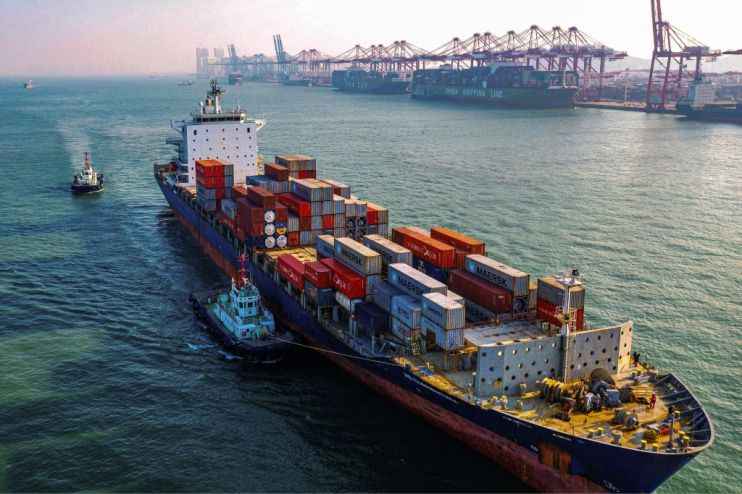UK trade bodies rebel against ‘cartel-like’ shipping costs

Make UK, the trade body representing UK manufacturers, has called on the Competition and Markets Authority (CMA) to open an investigation into the shipping sector’s “cartel-like practices” when it comes to the increase in prices.
Writing a letter to the CMA alongside the British Chamber of Commerce (BCC), Make UK has said that the “increase in profits for the major shipping companies without extra investment in capacity would suggest there are significant competition issues at play.”
“As business organisations representing approximately 100,000 members, the majority of whom are SMEs who cannot absorb the level of price increases we are seeing, we are asking you to work with us at pace to discuss the evidence on the functioning of the shipping market and to commence relevant investigations as a matter of urgency,” read the statement.
Talking to City A.M., the CMA outlined its possible course of action, saying that it continues to monitor market prices and disruption more broadly.
“We understand that small businesses – which tend not to have long term shipping contracts – are subject to spot rates and are particularly affected by price fluctuations,” said a CMA spokesperson. “In addition, the CMA is continuing to develop its understanding of how other issues, such as the reported HGV driver shortage and port congestion, are also affecting businesses.”
Due to its national scope, the CMA’s actions have a limited scope on issues that affect the global economy, potentially recurring to issuing fines and launching market studies.
Responding to the trade body’s letter, a spokesperson from the UK Chamber of Shipping said the current situation was caused by the increased demand for goods that was registered since the beginning of the Covid-19 pandemic.
“As demand for goods around the world has increased, so inevitably has the cost of moving these items,” they said. “However, many container lines have brought on extra capacity and moved more ships on to busier trade routes.”
Despite witnessing a drop in some freight rates, the UK Chamber of Shipping is continuing to collaborate with stakeholders from all over the supply chain as well as the government.
As highlighted by City A.M. last week, the shipping crisis is a global issue caused mainly by the pandemic.
The Covid-induced economic stimulus of the last 18 months has strained global supply chains, with shipping networks seeing a 30 per cent increase in reallocation of capacities compared to the same time last year.
“Ripple effects of this are felt all over the world, mainly in the form of high freight rates and difficulties in getting hold of empty containers to fill up with new goods for export to the Far East,” said Peter Sand, chief shipping analyst at the Baltic and International Maritime Council (BIMCO).
In the 12 months between August 2020 and 2021, the monthly average market price for a 40-foot container travelling between the Chinese port of Yantian and Los Angeles doubled from $3,247 to $6,570. The same happened on vessels connecting Shanghai to Long Beach.
The increase in price for moving goods is also tied to the shortage of containers, which could lead to a continuation of the shipping crisis well into 2022. The UK Institute of Export and International Trade reported in August that in 2021 a record number of ships with the capacity to carry 3.2 million 20-feet containers was ordered, with the demand corresponding to 20 per cent of the total fleet market.
Experts believe that national labour shortages, particularly of HGV drivers, have also played an important part.
“Britain’s escalating truck driver shortage means it is taking about ten days before cargo at Felixstowe can be unloaded, up from the usual four and-a-half days,” said David Jinks, head of consumer research at home delivery company Parcelhero. “That’s why Maersk has chosen to avoid Felixstowe by using EU ports to land goods destined for the UK. This will add new delays, especially with Brexit checks in place.”
Maersk made the headlines last week when it started diverting vessels to other European ports as a result of log-jams at the port of Felixstowe.